Concord developers on making a unique hero shooter: "We were able to lean into things that no one else was doing, because we created problems for ourselves"
Interview | Firewalk Studios takes GamesRadar+ through the process of making a game that stands out in a busy genre
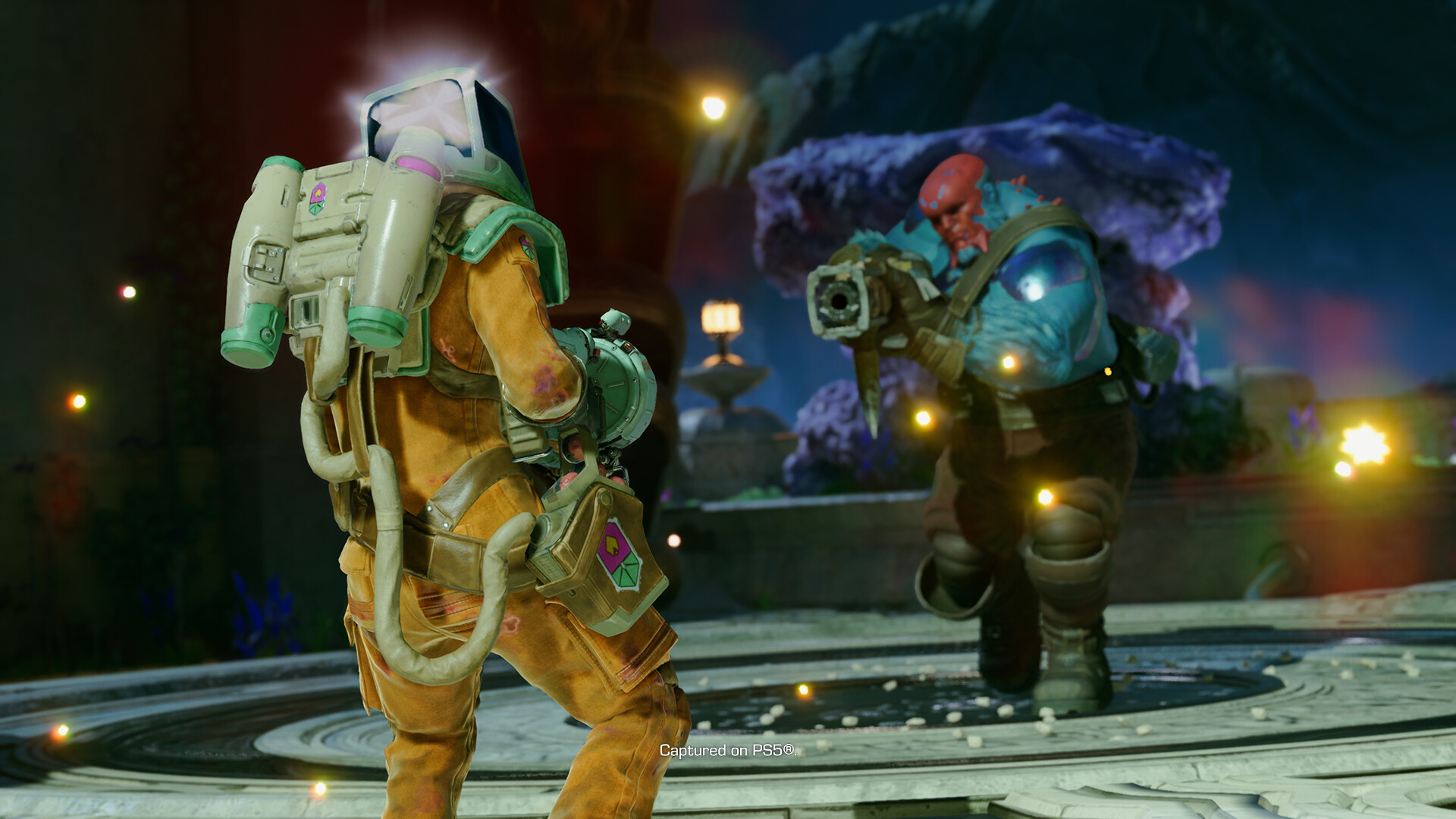
When I catch up with the team at Firewalk Studios, they're all a little sleepy. The PlayStation-owned studio has been developing sci-fi hero shooter Concord for the last eight years, and with its release date now just a day away, the three developers I'm speaking to – director of IP Kim Kreines, lead character designer Jon Weisnewski, and lead gameplay designer Claude Jerome – stayed up late the night before to play it.
Though I'm yet to dive in myself (although it's now launched at time of writing), I wanted to know what it takes to make a hero shooter stand out – particularly now, as Concord joins a growing number of games like Marvel Rivals and FragPunk in this year's hero shooter revival. With the genre only set to get busier as Valve's own Deadlock looms, here's how the team at Firewalk weighed in.
Staying on the objective
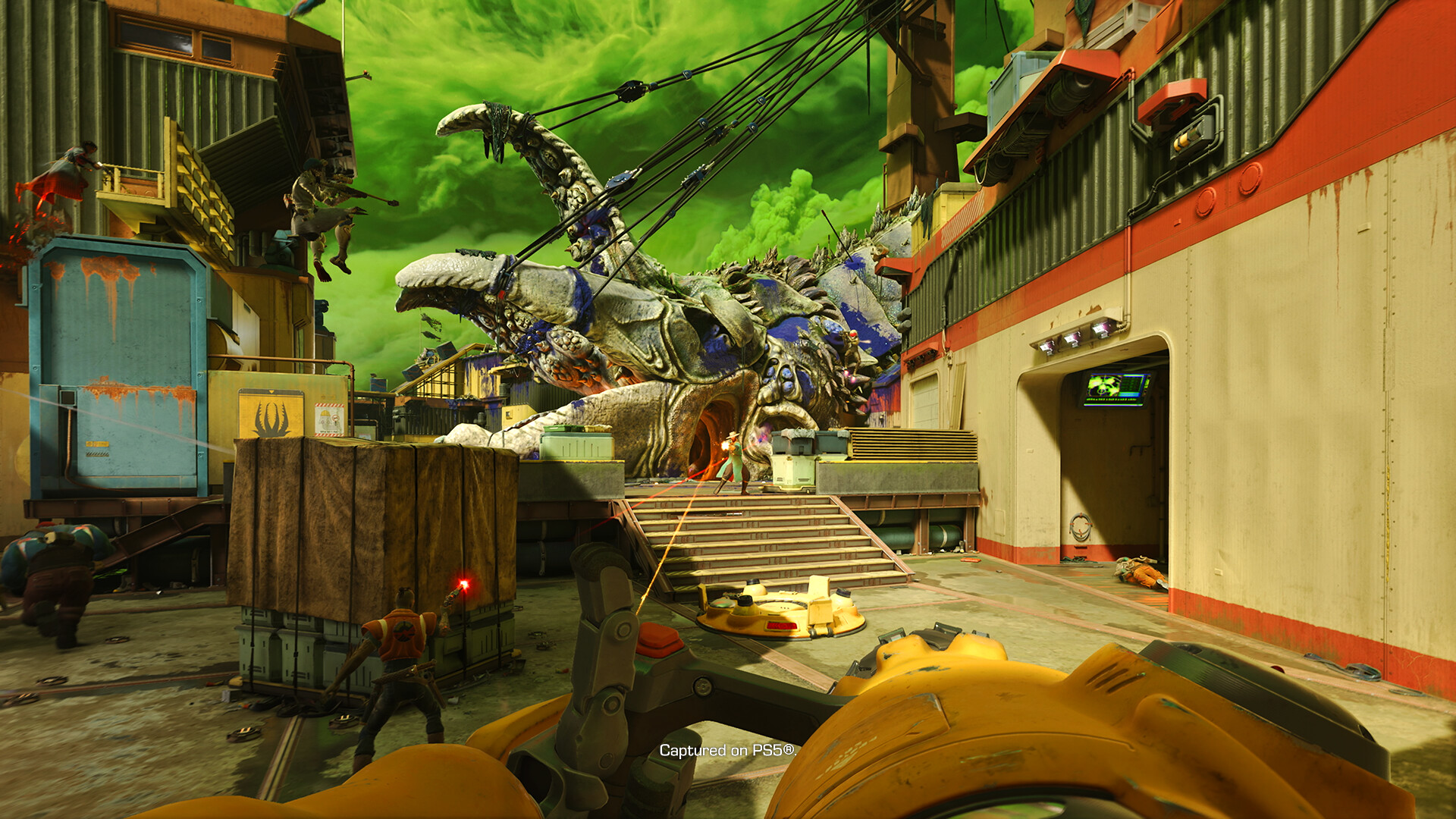
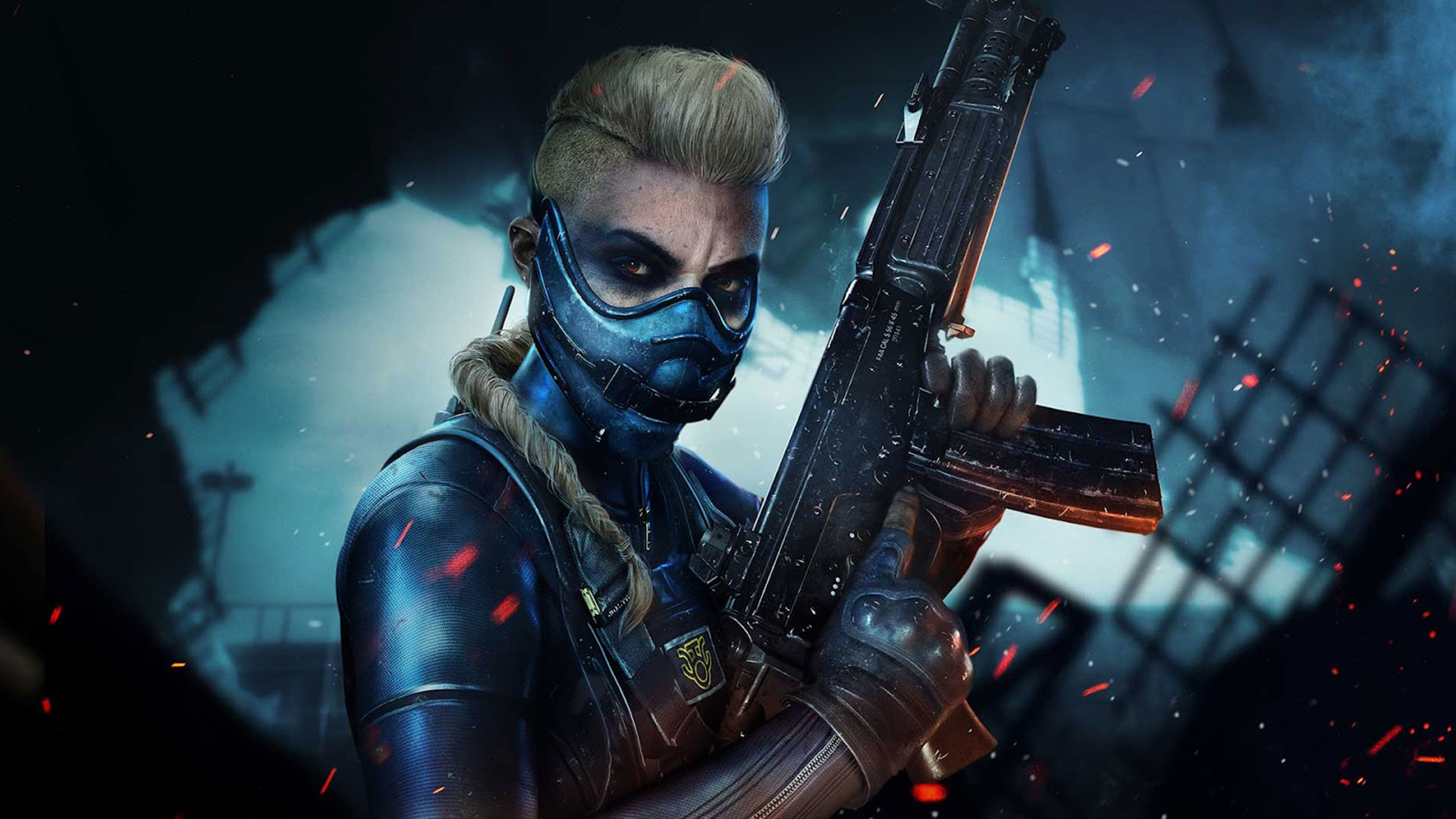
If one game isn't enough, here's a list of the best shooters you can play right now
GamesRadar+: How are we feeling about launch?
Jon Weisnewski: There's been a lot of work, a lot of energy put into this game, and it's a tremendous moment when you finally get to launch a thing that you've been working on so hard. Don't get a lot of these [launches] in our careers, and so you just kind of have to savor each one and enjoy it when it happens.
Kim Kreines: It's that moment when it goes from the thing we're making, to the thing we're sharing with the community. It's why we do what we do.
GR: Concord's been in development for eight years – in that time we've seen Overwatch explode in popularity, then really struggle. Were there any lessons to learn there?
Jon: Our studio has a really wide mix of people who worked on a ton of different games – a lot of first person shooter experience, and then also just a lot of video game experience. We have people on the team who have worked on Overwatch, so we actually have the benefit of [their] lessons from development that helped inform Concord. And so, we look at all types of games – all types of shooters – out there. We're confident that the identity of Concord is not what that game is doing, or what that game is doing. We know we need to have identity, and so we try to build for what we're doing.
Weekly digests, tales from the communities you love, and more
Claude Jerome: We're building this thing from the ground up. There's a lot of structural similarity in our first person shooter to other first person shooters, but there's these really interesting moments where you make a seemingly small tweak [that spirals]. It's this very delicate ecosystem. We made characters that vary between 10 feet tall and six feet tall, right? That made a huge impact on the way we have to design the rest of the combat, the way we design spaces, the way we have to design the moment to moment. And so we kept making these nudges on all these things that were like genre norms, and then we've kept finding our own footing. This game feels different in all these ways because we kept just embracing all those challenges. And players are seeing that. And you know at a glance, maybe it's harder to see that but once you're in it and your hands are on the controller and you're fully embodying a character, it all comes together. It feels really cool.
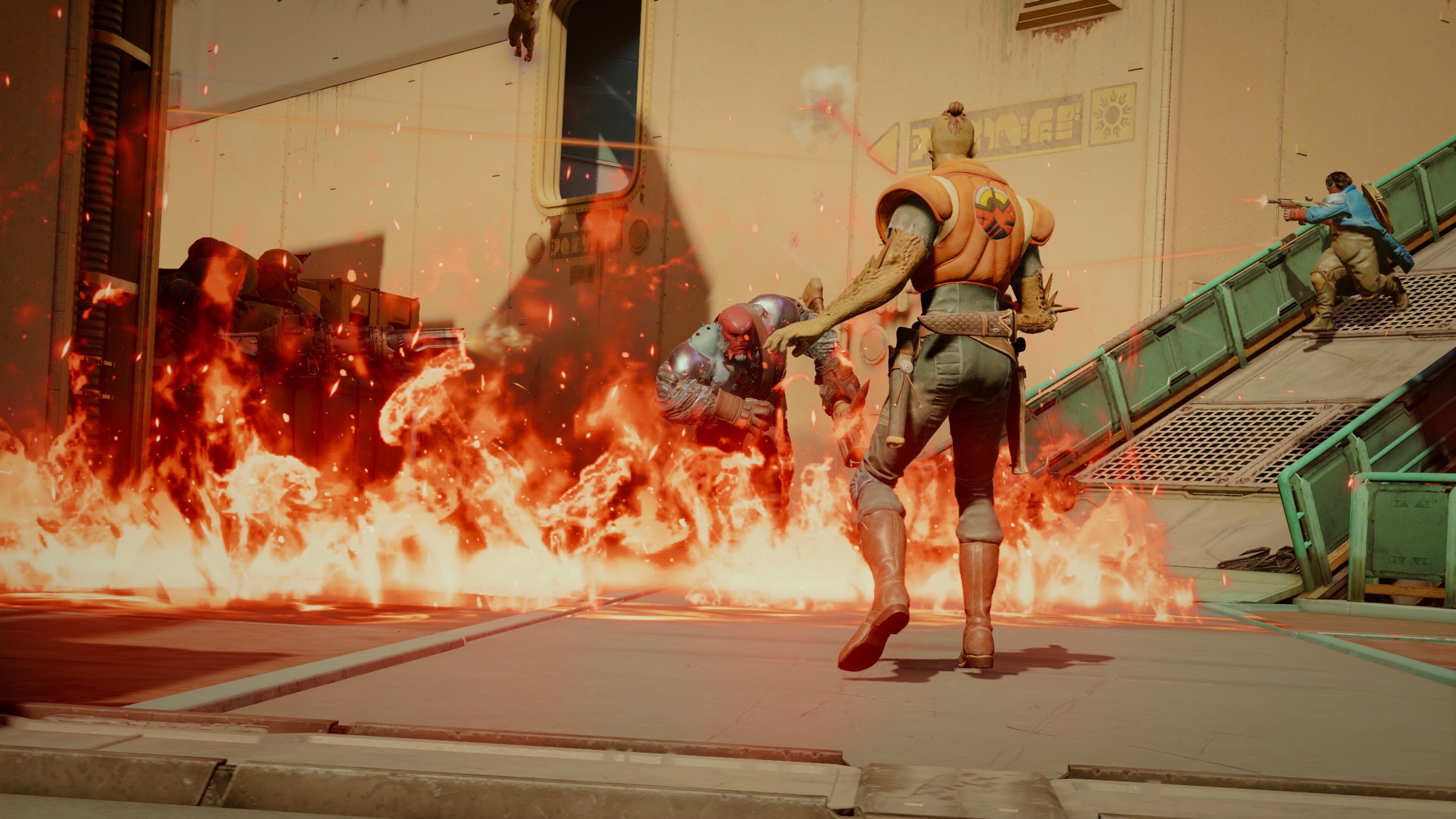
GR: Did the negative reaction to Overwatch 2 influence any elements of Concord that were being handled at the time?
Claude: We have our own unique problem space here too. So as much as it's inspiring oftentimes, to see how other games solve similar problems, we have our own problems that give us our own set of creative differences. We were able to lean into things that no one else was doing, because we created problems for ourselves. This degree of asymmetry where, like, the character speeds are different, their heights are different [...] We don't have traditional combat roles like healer, tank, DPS. All this is our stuff we just came out with. It's very challenging to work, but it creates this really unique, very sticky aspect of the game.
GR: On the topic of asymmetry – primary and secondary weapons between characters are limited. How does making something asymmetrical work within the context of balance?
Jon: When we started making characters, we weren't actively thinking about balance. We knew we would have to make counter-play feel fair and understandable at some point, but the real big focus at the start of building every character was making a combat personality that had a ton of identity, had lots of options, and had moments to really show a high degree of skill and utility [...] Then have that connect back to who that character is, and what their power fantasy is. After we did all that work of building up each character, that's the point when we got like 'OK, this character is definitely way too good, so bring this down a little bit, push that up'. But we already had the identity of each one of those characters set in stone at that point.
GR: We see a lot of hero shooters take place in sci-fi settings. What makes sci-fi a good fit for this genre?
Kim: Sci-fi allows us to explore so many possibilities. There is adventure. There are unique places – all of our worlds are realized in ways that hopefully feel familiar, but also feel like an unexplored wonder. And so as you cross this galaxy, there is this feeling of an unfolding narrative, of unpredictable space [...] It gives us a chance to build out a space where we can take you to different places of the galaxy. We can weave gigantic stories. We can take you then to the small, little, cozy place on the Northstar ship that feels like a home, where our characters are just normal people hanging out. That's what I've always loved as a fan of science fiction, is that you see reality and you see it in a fantastical way.
Jon: Sci-fi is the blank check to be like, oh, we're gonna have like a mushroom guy and someone who makes floating balls that explode.
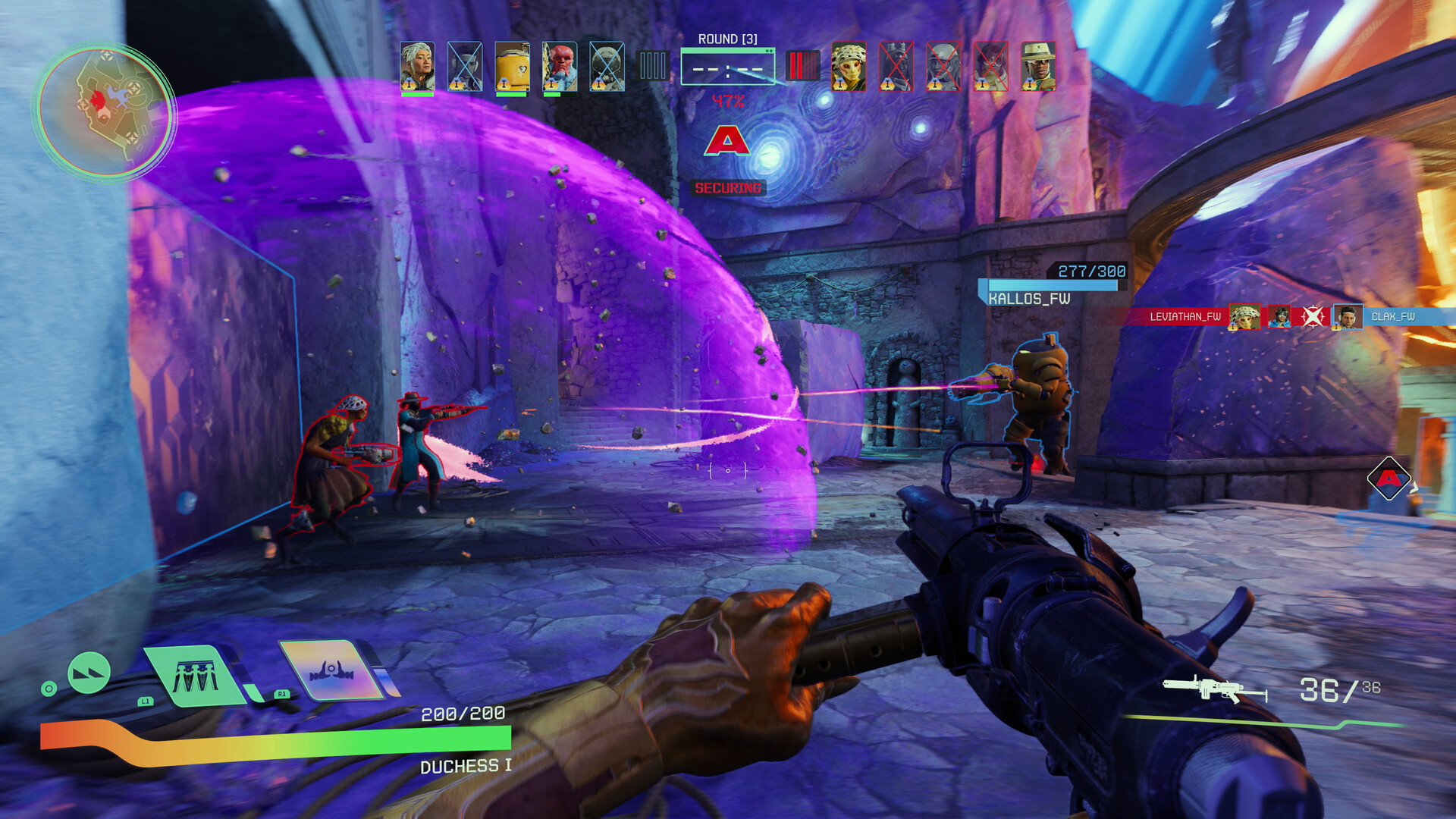
GR: There's a big wave of hero shooters launching at the moment. How do you build a unique identity within that?
Claude: I would say a lot of it is organic. Crew bonuses [for example] – it's this progression in the middle of the match where you can plan out how you're going to make your character stronger, and it's really strategic. You can see the impact incrementally. You make a change, and suddenly you're moving faster, or have better reloads. That came about when we were trying to solve this problem of jumping into a match and someone picks your favorite character. That was a really frustrating experience that we can all relate to. We tried to find a system that basically made it OK that you have to switch characters sometimes, or you don't get your favorite, and then suddenly we started finding this magic, [asking] 'What if we just actually made it really interesting to bounce between characters? What if we made it so that our game wasn't about one-tricking, it was five-tricking?'"
That came about organically from just playing every day, solving problems. We could play it like players, and then still treat it like developers, and kind of keep iterating on things that made it special.
GR: We're also seeing more developers turn away from the free to play model, specifically in multiplayer shooters. What was the philosophy behind opting for a paid model, and how do you feel it's influenced the way you've approached building this game?
Kim: I think from the start, we definitely knew it was important for us to create this community where players have the same experience together. Because when we're talking about the 16 characters [that are available at launch], that is an important part of what Concord is. So we knew we needed to get that into players' hands, and that experience is important from the beginning. So is our seasonal content, like the stuff that's coming in October for season one. We are so excited about – and I'm so excited that players just get that right all together, and the community gets to experience that together, and there's no barrier to entry. You just get the new character. You just get the new map. It's the same for season two, and season three. So we have this rollout of content that is hopefully going to excite a community and bring everybody in together, and this is a way to be able to do that.
Concord is available now on PlayStation and PC. For a glimpse of what lies in store, check out the Concord roadmap.
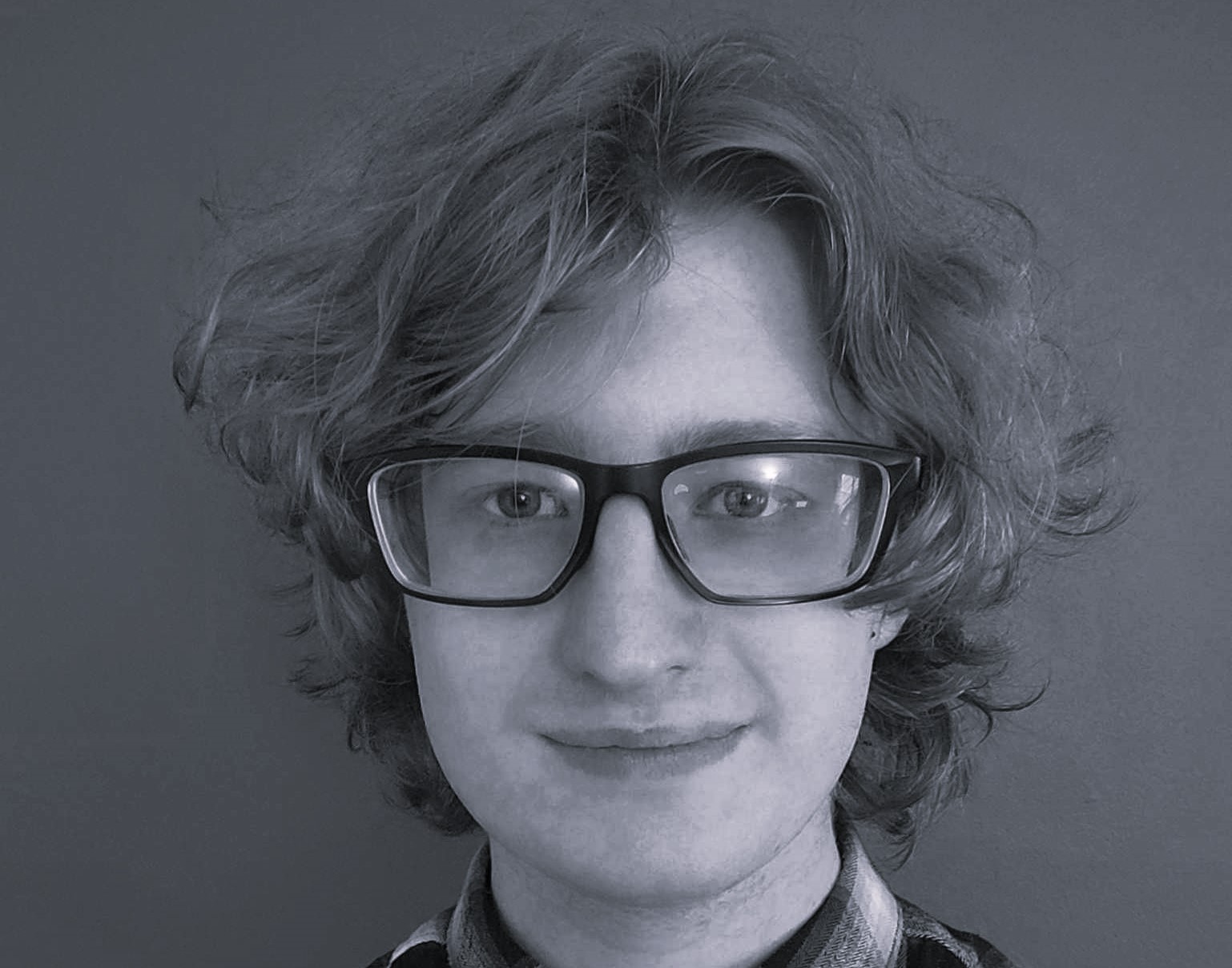
Andy Brown is the Features Editor of Gamesradar+, and joined the site in June 2024. Before arriving here, Andy earned a degree in Journalism and wrote about games and music at NME, all while trying (and failing) to hide a crippling obsession with strategy games. When he’s not bossing soldiers around in Total War, Andy can usually be found cleaning up after his chaotic husky Teemo, lost in a massive RPG, or diving into the latest soulslike – and writing about it for your amusement.


